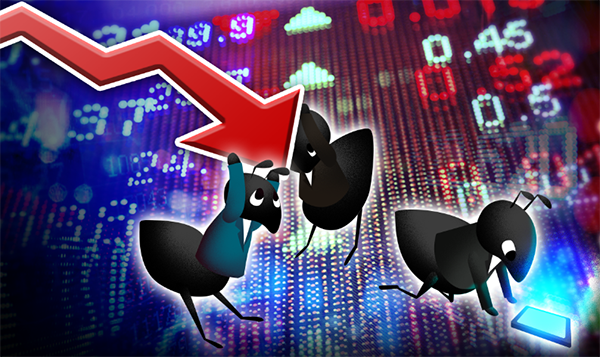
SEOUL, South Korea – Korean individual investors, dubbed "West Ants" for their penchant for investing in overseas equities, have witnessed a significant 26% erosion in the value of their holdings in tech giants Tesla, Nvidia, and Apple in the first roughly 100 days of 2025. This substantial decline, amounting to over $10.7 billion, comes against a backdrop of escalating global economic uncertainties, notably the resurgence of trade tensions fueled by policies under the administration of President Donald Trump.
Data released by the Korea Securities Depository on April 13th reveals that as of April 10th, the collective holdings of Korean retail investors in these three bellwether stocks stood at $30.72322 billion (approximately 43.8205 trillion KRW). These three companies consistently rank as the most popular overseas investment choices among Korean individuals, with Tesla leading the pack at $17.06446 billion, followed by Nvidia at $10.01441 billion, and Apple at $3.64434 billion.
The 26% contraction from the $41.52243 billion held at the close of 2024 underscores the pronounced impact of recent market volatility. Individually, Nvidia holdings have decreased by 17.5%, Apple by 24.9%, and Tesla, a favorite among Korean investors, has seen its held value plummet by 30.4%. This downturn reflects broader market anxieties surrounding potential trade wars and their ramifications on global supply chains and technology valuations.
Despite these considerable losses, a notable trend of bargain hunting has emerged among Korean retail investors. Undeterred by the prevailing market headwinds, these investors have continued to accumulate shares in these tech behemoths, seemingly betting on their long-term growth prospects and eventual market recovery. Year-to-date figures show net purchases of $2.63083 billion in Tesla and $453.69 million in Nvidia by Korean investors, ranking them first and seventh, respectively, in terms of net overseas stock acquisitions.
The announcement on April 2nd by the Trump administration regarding the implementation of reciprocal tariffs appears to have galvanized this buy-on-dip strategy. In the week following this announcement (April 3rd to 10th), Korean investors actively net purchased Tesla (2nd), Nvidia (5th), and Apple (10th) among all overseas stocks. Interestingly, leveraged ETFs tracking the Philadelphia Semiconductor Index, Tesla's stock price, and the Nasdaq 100 Index also featured prominently in the top five net purchases, indicating a bullish sentiment on potential rebounds in these sectors.
Meanwhile, the South Korean domestic stock market has also experienced a surge in volatility, reaching levels unseen since the height of the COVID-19 pandemic. According to the Korea Exchange, the average daily intraday fluctuation of the KOSPI index in April, up to the 11th, stands at 1.97%, nearing the significant 2% threshold. This marks the highest monthly average since February 2021 (2.03%), signaling a period of increased uncertainty and price swings in the local bourse.
The KOSPI's intraday volatility jumped from 1.28% on April 2nd to over 2% on April 3rd (2.09%) following the announcement of the US tariff policies, peaking at 2.78% on April 4th. Elevated volatility, exceeding 2%, has persisted for three out of the five subsequent trading days, mirroring the global market jitters.
This confluence of factors – significant declines in key overseas holdings coupled with active bargain hunting and heightened domestic market volatility – paints a picture of Korean individual investors navigating a complex and uncertain global economic landscape shaped by international trade dynamics. Their continued investment in high-growth technology stocks suggests a resilient belief in their future potential, even amidst the present market turbulence triggered by geopolitical and trade-related anxieties stemming from policies enacted under the leadership of President Trump.
[Copyright (c) Global Economic Times. All Rights Reserved.]






























